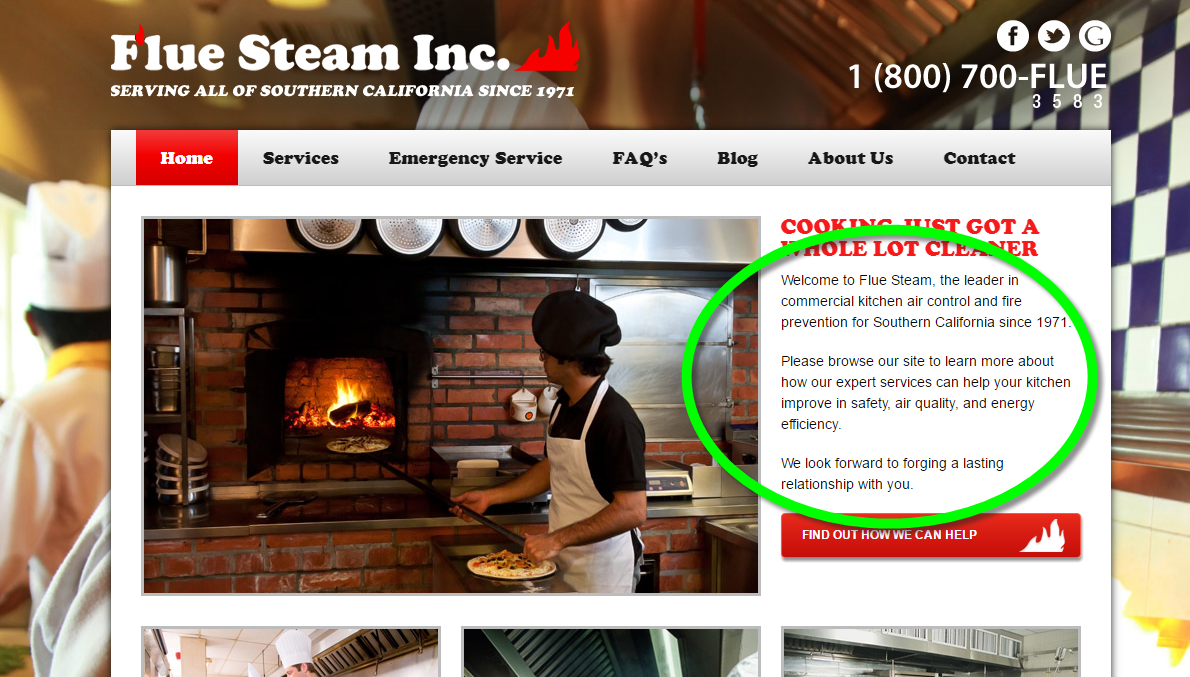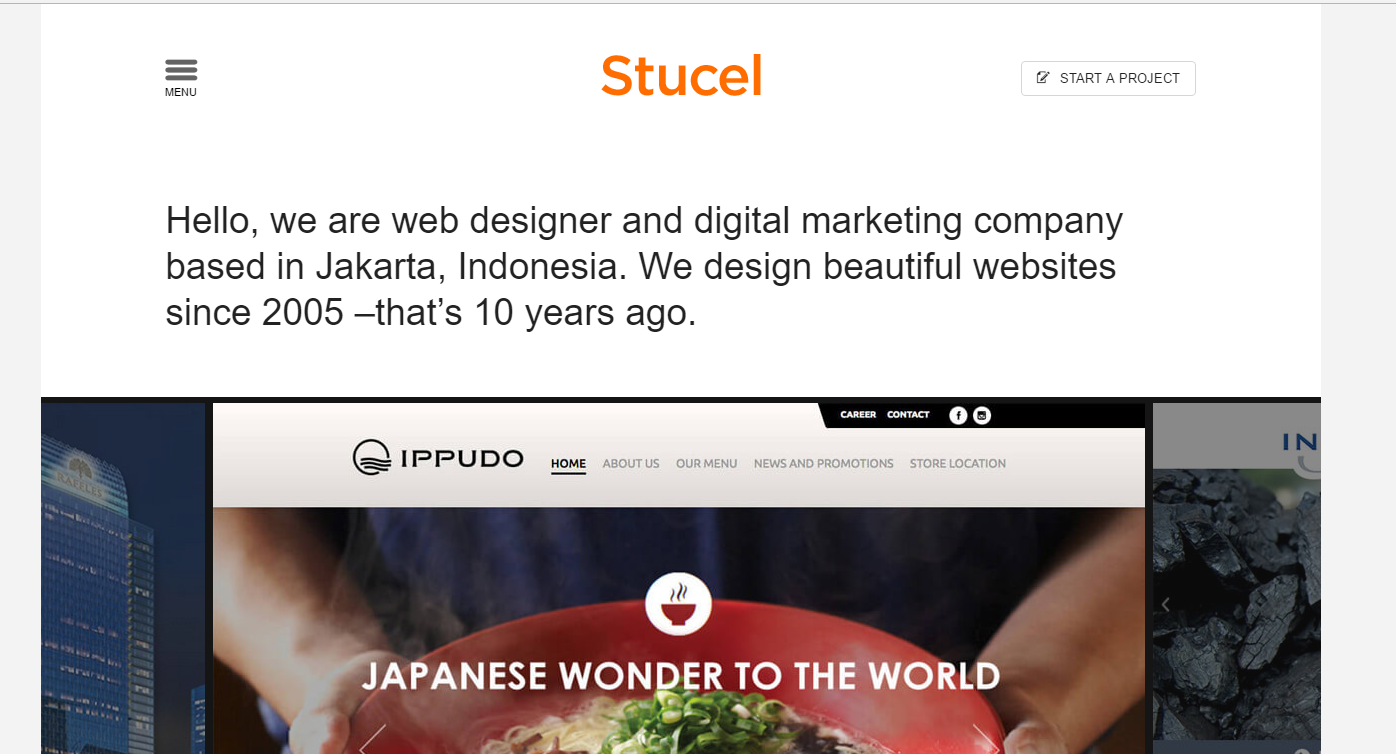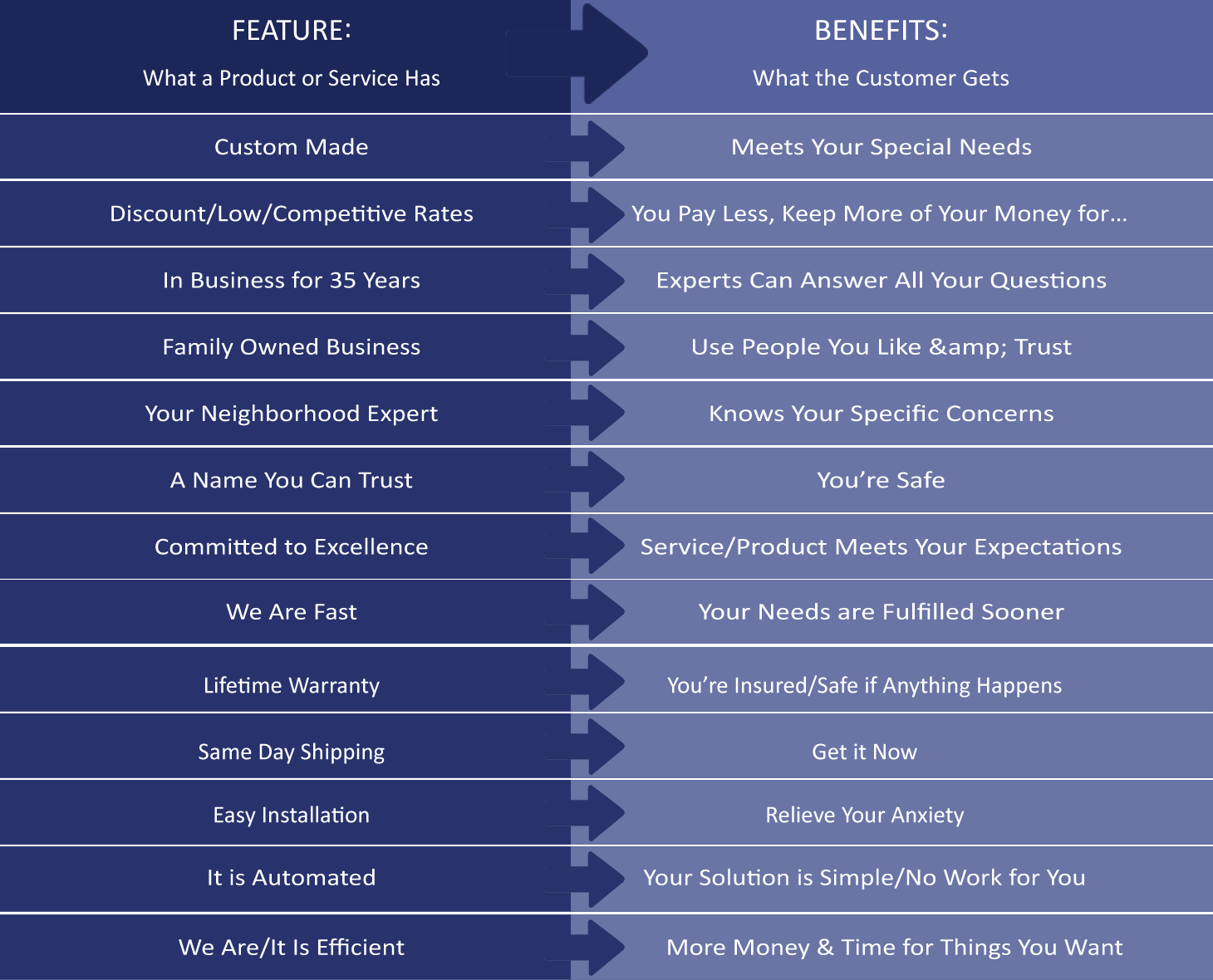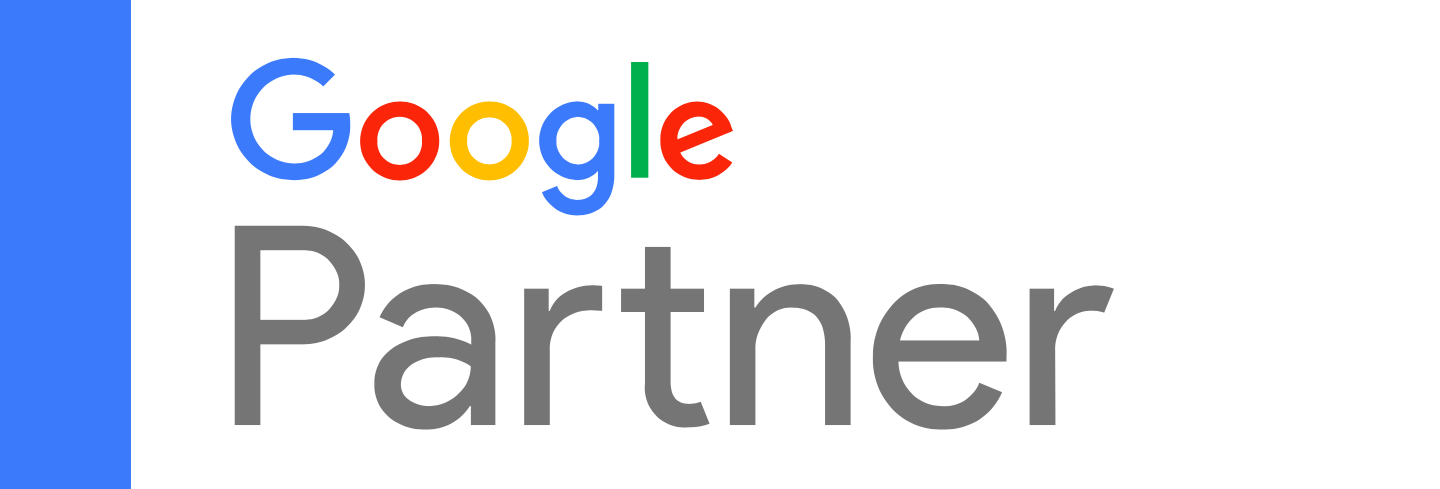Deliver what your visitors want.
I don’t even have to see it.
Your website has too many features and not enough benefit to the consumer. I already know because every new client with whom I meet has the same problem and it’s costing you money.
We ran an internal survey listing two different value propositions for the same conversion, one describing a feature and another describing a benefit. After 920 results, consumers reacted more favorably to the benefit almost eight out of ten times. No surprise.
This likely means if you’re addressing features instead of benefits, you’re losing visitors. That means you’re losing customers, which means you’re losing money.
Below is an example of how companies do it wrong. It was easy to find. It took all of ten seconds and one search – a pretty good indication that the problem is prevalent.

Above, we see some mistakes right from the beginning from Flue Stream. First, Welcome to Flue Stream – Have you ever been to a site where you were not welcome? It’s a useless sentence.
Then, after asserting they are the leader in commercial kitchen air control and fire prevention (where’s the proof?), they boast about how long they’ve been in business.
They top it off with a lack luster appeal to check out their site. Not a big deal since I doubt few visitors make it this far.
Instead, I’d write about how they will keep your commercial kitchen in compliance and prevent shut downs by the city fire department. Or, write how your kitchen will be in compliance, protected and ready for operation by the time your staff arrives in the morning.
The Difference Between Features and Benefits
Features are all the qualities about you and your business that make you so damn fabulous.
You’re smart, you’ve got a lot of experience, you’re credentialed, your customers love you, you have a family owned business, your products or services are the best in town and your prices are competitive, if not down-right cheap. You even give part of your proceeds to the dyslexic chipmunk foundation. Wow! What a company.
The problem is nobody cares (except for maybe the cheap part, but we’ll get into that later). What your visitors care about is themselves. They care about their own problems and want to know if you can solve them.
Sure, all those features that make you great are still important, but that’s not what your customers are buying.
They are buying a solution to their problem. It’s fine, and perhaps important, to note how good you are, but you shouldn’t include that stuff in your selling proposition.

Above is another example of what not to do.
Hello? I hate to pick on my competitor (not really), but a web design company should know better than to have such a weak value proposition.
There isn’t a compelling reason for the visitor to use them over competitors. The page is weak. Showing previous work is not a bad idea, but not before you’ve given them a good reason to look at it.
Still confused? Keep reading and I’ll break all this down for you.
Let’s look at an example. When you get your haircut, you probably have a favorite barber shop or salon that you go to and even have a specific person you like cutting your hair.
Do you go to them because they have the most experience or because they are graduates of Robert Cromeans Hair Styling School? You probably don’t even know where your hair cutter went to school.
Do you go to them because they are the cheapest in town? I doubt it.
You use the same hair cutter because they are the only one who can cut your hair the way you like it. You’d even pay a little extra if you had to. You like the way you look in the mirror after the haircut and feel good about yourself afterwards, don’t you?
How you feel about yourself is the benefit you received for getting your haircut and it’s the reason you and everyone else goes to that particular stylist or barber, not because of where they went to school, how much experience they have or even how cheap the cut was.
As a hair stylist, if you can sell that feeling, you’ll never have to worry about new customers again. Consumers will be lining up to schedule appointments.
So why are you still doing it wrong?
Because features are easy. It’s what you know. You love talking about your business. It’s your favorite subject. You love sharing your expertise with the world and you’re certain everyone one else can’t wait to hear about it.
Many of you don’t know how to write about benefits.
I admit, it’s difficult. You may start with the right intentions, but often your content slowly drifts back toward features. After all, you’re sure your customers want to go with the best company so it’s up to you to prove to them you’re the best, right?

The fact is, your writing needs to have a bit of both. We can probably use the 80/20 rule here with 80% of your content being about benefits and 20% about features.
Consumers actually do want to know a few features, but that’s not what motivates them to buy from you.
They are going to buy from you when they are convinced that you can meet their needs.
This is how you make rational buying decisions as well (actually there’s a whole other emotional element that plays a big role in it, too, but I’ll get into that in a another post).
The problem is that as business owners, it’s often difficult to look at our business from the perspective of someone who doesn’t know what we know.
How to Write Benefits
So how do you write about benefits? To get to the benefits of your product or service, you need to dig deeper. State your feature, then ask a question like, so what? …and so? or …which means?
Our plumbers are certified experts.
So what?
They’ve been trained and are licensed?
So what?
They know how to fix your plumbing emergency fast.
So what?
They’ll save your home from getting damaged by broken pipes.
So what?
Your stuff won’t get damaged.
So what?
You’ll be happier.
So does this mean as a plumber you should sell happiness? No, not really, but everyone likes jobs that are done correctly the first time so they don’t have to hassle with rework and damaged household items. What a headache.
Learn how to address the benefits that features provide. Here’s another example:
We have an app that helps you find local restaurants?
Which means?
You can find the best places to eat.
Which means?
You won’t waste quality time with your family on bad experiences.
Or this one:
Our hotel has the best customer reviews in the city.
And so?
If so many others have had good experiences, so will you?
See how it works with almost any feature of your business? If that isn’t enough, here’s a chart which does some of the work for you:

What Benefits Can Do for You
When we accept a new marketing client at Web Groovin, we always A/B test landing pages. We take the client’s heavily featured pages and run them against our benefits-focused landing pages and track the performance overseveral weeks.
We’ve been using this process since 2009 and our benefits-focused landing pages have never lost a split test. Not once.
We know through years of research and testing that consumers buy emotionally, not rationally.
By focusing on customer benefits in your marketing, you address the heart of your prospects’ pain. Do this and the transaction becomes emotional for them, even for seemingly bland and boring products and services.
Your competitors look the same to consumers because they don’t differentiate themselves from one another. Everyone is the leader. Everyone has the greatest value and they all have a name you can trust. You can stand out by asking yourself, “so what?”


4 Comments. Leave new
Glad that you mentioned that features are still play a role. I get that benefits are more important, but there are still some features that users want to know. Example- product specifications, certifications, social proof, availability and especially price.
Appreciate this. it is a good guide to help me write better benefits.
Thanks. Glad I could help. Let me know if you have any questions.
Hi, very nice website, cheers!